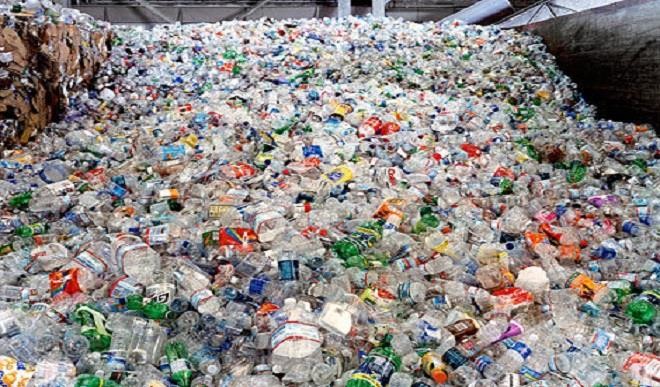UNEA: Global pledge against degraded planet, plastics menace
As the Fourth United Nations Environment Assembly (UNEA) ends in Nairobi on Friday, the world laid groundwork for a new model of development to protect the planet’s degraded resources. The assembly agreed to tackle environmental crisis through innovation and sustainable consumption and production while also committing to significantly reduce single-use plastic products by 2030. The […]

As the Fourth United Nations Environment Assembly (UNEA) ends in Nairobi on Friday, the world laid groundwork for a new model of development to protect the planet’s degraded resources.
The assembly agreed to tackle environmental crisis through innovation and sustainable consumption and production while also committing to significantly reduce single-use plastic products by 2030.
The UNEA is the world’s highest-level environmental forum, attended by heads of state, environment ministers, CEOs of multinational companies, NGOs, environmental activists, and more stakeholders.
According to a statement by United Nation Environment Programme (UNEP), the assembly which was attended by ministers from 170 United Nations Member States, laid groundwork for a radical shift to a more sustainable future, where innovation will be harnessed to tackle environmental challenges, the use of throwaway plastics will be significantly reduced, and development will no longer cost the earth.
“The world needed to speed up moves towards a new model of development in order to respect the vision laid out in the Sustainable Development Goals for 2030,” the ministers said.
“We reaffirm that poverty eradication, changing unsustainable and promoting sustainable patterns of consumption and production and protecting and managing the natural resource base of economic and social development are the overarching objectives of, and essential requirements for, sustainable development,” theyalso said in a final declaration.
“We will improve national resource management strategies with integrated full lifecycle approaches and analysis to achieve resource-efficient and low-carbon economies,” they said.
The ministers pledged to address the damage to their ecosystems caused by the unsustainable use and disposal of plastic products, including by significantly reducing single-use plastic products by 2030, and to work with the private sector to find affordable and environmentally friendly products. To address critical knowledge gaps, they promised to work towards producing comparable international environmental data while improving national monitoring systems and technologies.
They also expressed support for UN Environment’s efforts to develop a global environmental data strategy by 2025.
President of the Fourth UN Environment Assembly and Estonia’s environment minister Siim Kiisler said: “We have decided to do things differently. From reducing our dependence on single-use plastics to placing sustainability at the heart of all future development, we will transform the way we live. We have the innovative solutions we need. Now we must adopt the policies that allow us to implement them.”
UN Deputy Secretary-General Amina Mohammed, who attended the summit on Thursday, said action on unsustainable resource use was no longer a choice, but a necessity.
“As Member States have stated during vibrant debates, alongside civil society, businesses, the science community and other stakeholders here in Nairobi, it is yet possible to increase our well-being, and at the same time maintain economic growth through a clever mix of climate mitigation, resource efficiency and biodiversity protection policies,” she said.
The UN Environment’s Acting Executive Director, Joyce Msuya said: “If countries deliver on all that was agreed here and implement the resolutions, we could take a big step towards a new world order where we no longer grow at the expense of nature but instead see people and planet thrive together.”
Speaking, French President Emmanuel Macron said “We believe that what we need, given the situation we live in, are real laws, rules that are binding and adopted internationally. Our biosphere faces total devastation. Humanity itself is threatened. We cannot simply respond with some nice-sounding principles without any real impact.”
Ministers adopted a number of resolutions on marine plastic litter and microplastics, including a commitment to establish a multi-stakeholder platform within UN Environment to take immediate action towards the long-term elimination of litter and microplastics.
